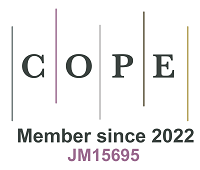The Latest Articles on Neuroinflammation in Neurodegenerative Diseases
Our staff editors continue to share exciting, interesting, and thought-provoking reading material in the recommended articles series.
This week, we would like to share several latest articles on Neuroinflammation in Neurodegenerative Diseases.
Title: Basic Science of Neuroinflammation and Involvement of the Inflammatory Response in Disorders of the Nervous System
Authors: Sepideh Parsi PhD, Cindy Zhu, Negin Jalali Motlagh MD, Daeki Kim, Enrico G. Küllenberg MD, Hyung-Hwan Kim PhD, Rebecca L. Gillani MD, PhD, John W. Chen MD, PhD
Type: Review Article
Key points:
Neuroinflammation is a key immune response in the central nervous system (CNS) observed in many neurologic diseases.
The CNS is separated from the periphery by the blood–brain barrier (BBB) that creates an immune-privileged site with its own unique immune cells and immune response.
BBB compromise causes an influx of peripheral immune cells and factors that interact with resident immune cells in the CNS.
Neuroinflammation can exert damaging as well as beneficial effects depending on the context.
Access this article: https://doi.org/10.1016/j.mric.2024.01.003
Title: Crosstalk between gut microbiome and neuroinflammation in pathogenesis of HIV-associated neurocognitive disorder
Authors: Xue Chen, Jiaqi Wei, Yang Zhang, Yulin Zhang, Tong Zhang
Type: Review Article
Abstract:
HIV-associated neurocognitive disorder (HAND) has become a chronic neurodegenerative disease affecting the quality of life in people living with HIV (PLWH). Despite an established association between HAND and neuroinflammation induced by HIV proteins (gp120, Tat, Rev., Nef, and Vpr), the pathogenesis of HAND remains to be fully elucidated. Accumulating evidence demonstrated that the gut microbiome is emerging as a critical regulator of various neurodegenerative diseases (e.g., Parkinson's disease, Alzheimer's disease), suggesting that the crosstalk between the gut microbiome and neuroinflammation may contribute to the development of these diseases, for example, gut dysbiosis and microbiota-derived metabolites can trigger inflammation in the brain. However, the potential role of the gut microbiome in the pathogenesis of HAND remains largely unexplored. In this review, we aim to discuss and elucidate the HAND pathogenesis correlated with gut microbiome and neuroinflammation, and intend to explore the probable intervention strategies for HAND.
Access this article: https://doi.org/10.1016/j.jns.2024.122889
Title: Colony Stimulating Factor-1 Receptor: An emerging target for neuroinflammation PET imaging and AD therapy
Authors: Anupriya Adhikari, Kanchan Chauhan, Manish Adhikari, Anjani K. Tiwari
Type: Review Article
Abstract:
Although neuroinflammation is a significant pathogenic feature of many neurologic disorders, its precise function in-vivo is still not completely known. PET imaging enables the longitudinal examination, quantification, and tracking of different neuroinflammation biomarkers in living subjects. Particularly, PET imaging of Microglia, specialised dynamic immune cells crucial for maintaining brain homeostasis in central nervous system (CNS), is crucial for staging the neuroinflammation. Colony Stimulating Factor- 1 Receptor (CSF-1R) PET imaging is a novel method for the quantification of neuroinflammation. CSF-1R is mainly expressed on microglia, and neurodegenerative disorders greatly up-regulate its expression. The present review primarily focuses on the development, pros and cons of all the CSF-1R PET tracers reported for neuroinflammation imaging. Apart from neuroinflammation imaging, CSF-1R inhibitors are also reported for the therapy of neurodegenerative diseases such as Alzheimer's disease (AD). AD is a prevalent, advancing, and fatal neurodegenerative condition that have the characteristic feature of persistent neuroinflammation and primarily affects the elderly. The aetiology of AD is profoundly influenced by amyloid-beta (Aβ) plaques, intracellular neurofibrillary tangles, and microglial dysfunction. Increasing evidence suggests that CSF-1R inhibitors (CSF-1Ri) can be helpful in preclinical models of neurodegenerative diseases. This review article also summarises the most recent developments of CSF-1Ri-based therapy for AD.
Access this article: https://doi.org/10.1016/j.bmc.2024.117628
Title: Psilocybin and eugenol prevent DSS-induced neuroinflammation in micen
Authors: Timur Zanikov, Marta Gerasymchuk, Gregory Ian Robinson, Esmaeel Ghasemi Gojani, Shima Asghari, Alyssa Groves, Mackenzie Cameron, Rocio Rodriguez-Juarez, Alexandra Snelling, Darryl Hudson, Anna Fiselier, Olga Kovalchuk, Igor Kovalchuk
Type: Research Article
Abstract:
Neuroinflammation has emerged as a central pathology common to several acute and chronic brain diseases. Recent studies have displayed the anti-inflammatory properties of naturally occurring compounds derived from mushrooms and plants could potentially reduce neuroinflammation and disease progression. In this study, we aimed to investigate the impact of psilocybin and eugenol, as well as their combinations, on neuroinflammation. To induce inflammation through the gut-brain axis, we employed a colitis mouse model via oral feeding of dextran sulfate sodium (DSS). By administering various concentrations and combinations of treatments, both before and after inducing inflammation, we sought to assess the synergistic anti-inflammatory effects of psilocybin and eugenol. Our findings revealed oral psilocybin and eugenol post-treatment significantly reduced the expression of pro-inflammatory cytokines and inflammatory mediators in the brain, including IL-1β, IL-6, and COX-2. Notably, combined treatment of psilocybin and eugenol exhibited the strongest reduction in IL-6 levels when compared to the DSS group. While both psilocybin and eugenol possess anti-inflammatory effects, the combined treatment overall did not demonstrate synergistic reductions in neuroinflammation across all markers. This study adds to the growing body of evidence supporting the therapeutic potential of psilocybin and eugenol in psychiatric and neurodegenerative inflammatory disorders. Further research is necessary to elucidate the underlying mechanisms of their anti-inflammatory effects and to evaluate their efficacy in clinical settings.
Access this article: https://doi.org/10.1016/j.bcab.2024.103033
Title: Dietary fatty acid composition drives neuroinflammation and impaired behavior in obesity
Authors: Clara Sanchez, Cécilia Colson, Nadine Gautier, Pascal Noser, Juliette Salvi, Maxime Villet, Lucile Fleuriot, Caroline Peltier, Pascal Schlich, Frédéric Brau, Ariane Sharif, Ali Altintas, Ez-Zoubir Amri, Jean-Louis Nahon, Nicolas Blondeau, Alexandre Benani, Romain Barrès, Carole Rovère
Type: Research Article
Abstract:
Nutrient composition in obesogenic diets may influence the severity of disorders associated with obesity such as insulin-resistance and chronic inflammation. Here we hypothesized that obesogenic diets rich in fat and varying in fatty acid composition, particularly in omega 6 (ω6) to omega 3 (ω3) ratio, have various effects on energy metabolism, neuroinflammation and behavior. Mice were fed either a control diet or a high fat diet (HFD) containing either low (LO), medium (ME) or high (HI) ω6/ω3 ratio. Mice from the HFD-LO group consumed less calories and exhibited less body weight gain compared to other HFD groups. Both HFD-ME and HFD-HI impaired glucose metabolism while HFD-LO partly prevented insulin intolerance and was associated with normal leptin levels despite higher subcutaneous and perigonadal adiposity. Only HFD-HI increased anxiety and impaired spatial memory, together with increased inflammation in the hypothalamus and hippocampus. Our results show that impaired glucose metabolism and neuroinflammation are uncoupled, and support that diets with a high ω6/ω3 ratio are associated with neuroinflammation and the behavioral deterioration coupled with the consumption of diets rich in fat.
Access this article: https://doi.org/10.1016/j.bbi.2024.01.216






